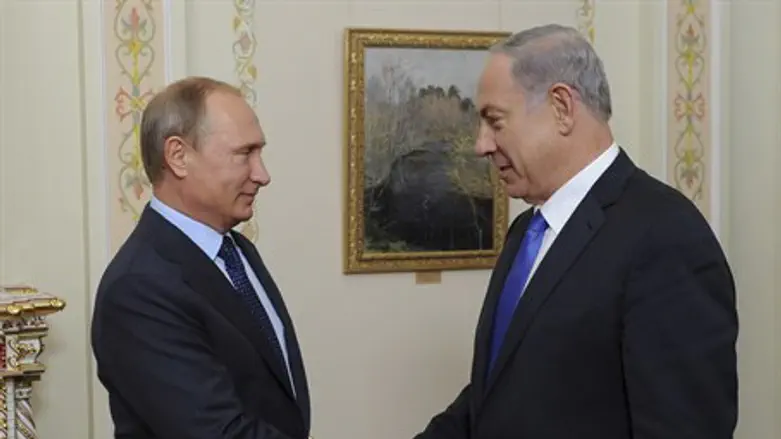
Despite an apology from Turkish Prime Minister Recep Tayyip Erdogan over the downing of a Russian fighter jet on the Syrian border last week, President Vladimir Putin has launched an economic sanctions package against Ankara.
Following this new escalation of growing tensions between Russia and Turkey, Arutz Sheva spoke with Professor Ze'ev Hanin of Ariel University, who estimates the two countries have entered a new era of cold war.
"The attack on the Russian plane was a problem many were expecting," Prof. Hanin asserted. "These are two countries that both want to become superpowers, who, until now, had good relations, but now, when it comes to the struggle for the future of Syria, there are conflicting interests. The Russians support [Syrian President] Assad, and the Turks supports the rebels."
"The conflict between the Russians and Turks was expected," he summed up.
"The Turks wanted to show the Russians they cannot get in their way, so whether the Russian aircraft actually entered Turkish airspace is irrelevant," Prof. Hanin contended. "These are two states that need to flex their muscles, and it doesn't really matter who started it first."
"Currently, the two countries are in a state of cold war, but they have no interest is passing over to a hot war."
Professor Hanin believes Israel will reap the rewards from Russia's boycott of Turkish goods.
"Russia has already taken several measures, including economic ones," he noted. "Russian tourism to Turkey stood at 4 million a year until this point. Tourists from Russia may start to arrive more at hotels in Eilat and Tel Aviv. Even the ban on agricultural products from Turkey can affect us positively."